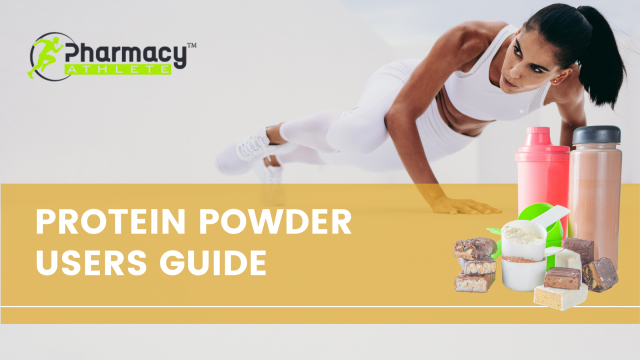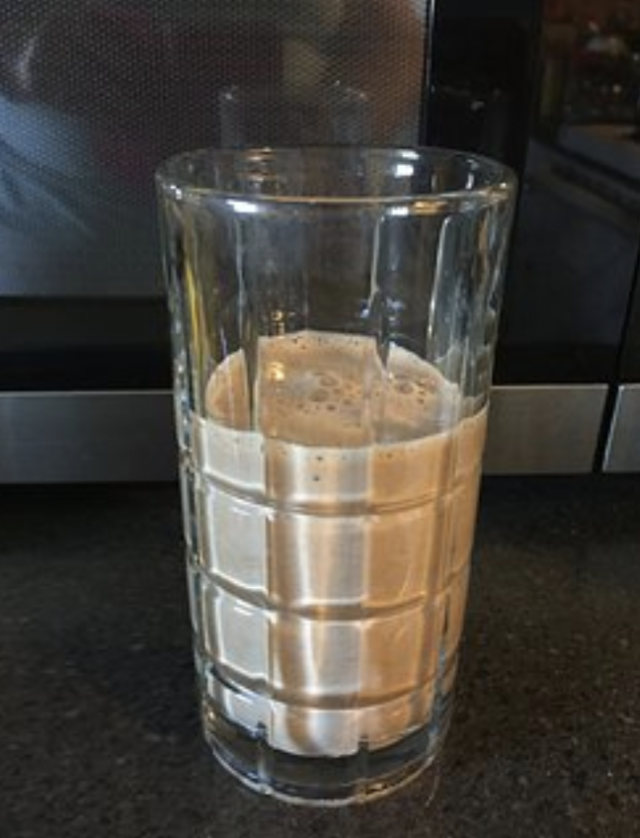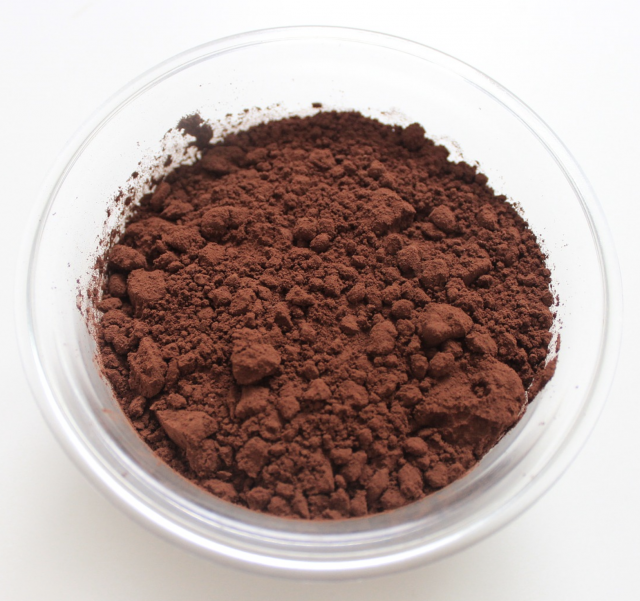Protein Powder Guide For Users

If you have been spending hours at the gym lifting weights, it is expected for you to have bigger and stronger muscles. However, having the optimal results can only happen if you exert the same effort in the kitchen – ensuring you eat the right food that matches your workout routine.
The right food includes protein powder which is essential in maintaining critical bodily functions while repairing damaged muscles after an intense workout. Not only that, protein can help you feel fuller longer at the same time decreases the likelihood of turning to sweets and fatty snacks.
But with so many protein powders available, choosing the right one can be confusing. Is whey better than mixed plant protein? Or is it best to go for 100% vegan protein? Is it necessary to take protein powder supplements? Is it safe to take for people with allergies?
The answers to these questions are available below. This Protein powder user guide was created after the launch of ISO JYM and Plant JYM products. And since I have now 3 protein powder products, being Pro JYM, the latest addition, it is understandable that choosing the best one for you can be daunting.
So, here’s how to help you decide which one to choose and how to properly incorporate them in your workout regimen to achieve a bigger, stronger, and leaner physique.
How Much Protein Powder Should I Take

Serving suggestions for most protein powders are around 30 grams. But my recommendation is to consume a minimum of 1 gram of protein powder per pound of body weight or at least 1.5 grams of protein powder per pound of body weight per day.
For a 200 pound individual, 1.5 grams of protein powder is 300 grams per day or the minimum intake is 200 grams daily.
According to research, high protein intake at this level is said to be beneficial in muscle building and weight loss. So, you will not only have bigger, stronger muscles, and a leaner body.
Do I Need Protein Powder
Dairy and poultry products are good sources of protein. However, based on the recommended protein intake of 300 grams per day based on 200 pounds body weight that means a lot of eating just to hit your protein goals.
If you follow a workout program like weight training, cardio, or endurance, powdered protein is crucial to keep up with your high protein diet without the need for constant eating.
While getting the majority of your protein intake through whole food, this is when protein powder comes in handy. Powdered proteins are supplements that fill in the nutritional gaps to complete your daily dietary protein needs. And this has been practiced by elite athletes, bodybuilders, and gym warriors.
When to Take Powdered Protein

Anyone who trains should begin taking protein powder within the training window to get its maximum benefits. Drinking powdered protein shakes or smoothie within 30 minutes before finishing your training will initiate recovery.
Unlike whole food like eggs, meat, chicken, and fish, it takes a long time for the proteins to be broken down into amino acids. With protein powder, the bloodstream is then flooded with amino acids that will initiate repair and building muscle tissue in a shorter period.
I generally propose at least 40 t0 60 grams of protein powder intake around workouts. This can be split up in two; take 20 grams before training and 20-40 grams after training. Or you can take the recommended 40 to 60 grams before and during your workout.
Protein powder can also be taken any time of the day. This comes in handy especially when you are out and about, rushing for work in the morning, or do not have time to prepare a real meal.
Types of Protein Powder

In this section, I will be focusing on the 3 main categories of powdered protein. I will also mention the corresponding JYM product in each category.
I will also be discussing what types of protein fall under this classification, the key features of each type, nutrition breakdown of JYM protein powder, when is the best time to take this protein and who can take this protein?
Plant Protein Powder (Plant JYM) – pea and rice protein isolates
Plant JYM is a combination of 2 sources of protein: rice and pea. Based on research, this type of protein powder is best in optimizing muscle growth and muscle protein synthesis (MPS).
Plant JYM Product Breakdown
- Protein Types: Pea Protein Isolate, Rice Protein Isolate
- Protein per serving (1 scoop): 24 grams
- Calories/Carbs/Fat per serving (1 scoop): 140 calories, 5 grams carbs, 2.5 grams fat
- Other key features: No soy, gluten, or lactose; fortified with additional BCAAs and other essential amino acids (EAAs)
Plant JYM is ideal for vegans or anyone wanting to switch to the vegan lifestyle while having the training to build muscle. This is also best for anyone who is experiencing stomach discomfort from dairy-based proteins.
Plant JYM can be taken anytime; first thing in the morning, in between meals, before, during, or after a workout.
Protein Blend Powder (Pro JYM) – whey, casein, and egg proteins
This refers to the type of protein powder that consists of more than one type of protein. My Pro JYM protein blend falls under this category and contains mainly: whey, casein, and egg.
These 3 digests at different speeds in the body. Whey is fast absorbing; the egg is a medium absorbing type of protein while casein is very slow absorbing. This makes a potent blend for muscle building as numerous studies show that taking fast and slow digesting proteins speed up Muscle Protein Synthesis (MPS). Adding medium-digesting protein to the mix is also found to be effective in muscle growth.
Pro JYM Breakdown:
- Protein Types: Whey Protein Isolate, Micellar Casein, Milk Protein Isolate, Egg White Protein
- Protein per serving (1 scoop): 24 grams
- Calories/Carbs/Fat per serving (1 scoop): 140-170 calories, 4-8 grams carbs, 0 grams lactose, 2.5-4 grams fat (depending on flavor)
- Other key features: 0 grams lactose
Pro JYM is recommended to anyone who wants strength and lean muscle growth. This can be taken anytime of the day and even before bedtime.
Whey Protein Powder (ISO JYM) whey protein isolate or WPI
Iso JYM Product Breakdown
- Protein Types: Whey Protein Isolate (WPI)
- Protein per serving (1 scoop): 20 grams
- Calories/Carbs/Fat per serving (1 scoop): 90 calories, 1-2 grams carbs, 0 grams lactose, 0 grams fat
- Other key features: Light, refreshing flavors
ISO JYM is your everyday protein supplement. This product is also ideal to quench your thirst without the addictive sugar your get from most beverages. ISO JYM is great for lean muscle gains.
It is best to take ISO JYM in the morning along with a whole food meal. If muscle building is your main goal, ISO JYM will help you achieve your goal.
Whey Protein Powder
Iso JYM
This category focuses mainly on products that only contain whey protein even if some contain multiple types of whey like whey protein isolate, concentrate, and hydrolysate.
Here, I will be talking about the difference between whey protein (WPI) and whey protein concentrate (WPC), the two most common types of whey found in protein powders. And just to give you a comparison between whey protein hydrolysate (WPH) and WPI, WPH is faster digesting than WPI. However, WPH is more expensive than WPI and personally, not worth the extra money since WPI is fast digesting in its own right.
Whey Protein Isolate vs. Whey Protein Concentrate
Just to set things straight, I only use Whey Protein Isolate (WPI) in my protein powders. None of my products contain Whey Protein Concentrate (WPC) because of the following reasons: (1) WPI contains more protein than WPC, and (2) WPC contains more lactose than WPI.
When WPI is made, you get 90% or more protein. Unlike others like WPC, you get a certain percentage of protein than fats and carbs. A scoop of WPC can is made of 80% protein (at best) or as little as 35%.
The extra fat that you are getting from WPC is lactose which is not a great choice if you have stomach issues like bloating, gas, or diarrhea. With the majority of adults having these issues, my recommendation is to always check the ingredients list before purchasing as most likely these are made of whey protein concentrate.
You are not getting a cut back on protein but getting a boatload of lactose. Not only that, the extra carbs and fat can lead to unnecessary fat gain instead of lean muscles. So, when you buy protein powder supplements, always go for pure protein with minimal fat and carbs. Just
All my JYM powder proteins have zero lactose, all are easier to digest.
Why Do Companies Use WPC?
Other companies use WPC in their powdered protein products for the main reason that it is cheaper. Because the main ingredient is cheaper, this makes their profit margins higher. And as for the end users, you are wasting your money on loads of unwanted fat and carbs.
The difference with WPI is that the whey protein is literally “isolated” from the undesirable carbs and fat. That is why I only use WPI in my protein powders and even in my JYM bar.
Here’s the nutritional breakdown of 1 scoop of my Iso JYM powder protein: 20 grams of protein, 0 grams fat, and 1 gram of carbs.
Iso JYM Product Breakdown
- Protein Types: Whey Protein Isolate (WPI)
- Protein per serving (1 scoop): 20 grams
- Calories/Carbs/Fat per serving (1 scoop): 90 calories, 1-2 grams carbs, 0 grams lactose, 0 grams fat
- Other key features: Light, refreshing flavors
Who Can Take Whey Protein Isolate?
Iso JYM is ideal for individuals looking for pure and high quality whey products. The product is a pure protein with only a gram of carbs. It comes in 3 different refreshing flavors.
Iso JYM is an everyday powdered protein supplement to quench your thirst without the guilt of going over your required daily fat and carb intake. It delivers the most protein per calorie.
When Is The Best Time to Take Whey Protein Isolate?
It should be first thing in the morning if your main goal is to build muscles. But you can also take Iso WPI with your regular meal to boost the total protein content of a meal.
Research suggests that to maximize MPS or Muscle Protein Synthesis after a meal, the meal should provide at least 3 grams of amino acid leucine. So, if your meal provides less than 40 grams of protein, then you can boost it up with a WPI shake or smoothie.
Basically, there is no bad time to take Iso JYM. But I personally take it pre, during, and post-workout sessions.
How to Prepare Iso JYM
- With your choice of Iso JYM flavor: grape, mango, and green apple gummy use 10-16 ounces of cold water for every scoop of Iso JYM. But if your protein goal is 40 grams, use 20-32 ounces.
- Iso JYM can also be mixed with Pre JYM or Post JYM after workouts.
- Just mix thoroughly using a shaker and you are good to go.
Plant Protein Powder
Plant JYM
Plant-based powdered proteins are those that contain proteins sourced from plants only. Plant sources can be soy, almonds, peas, rice, and hemp to name a few.
Peas and rice are two of the best sources of plant protein. These two are found in my Plant JYM protein powder. Just like the rest of my powdered protein projects, I only use rice and pea protein isolates in my vegan-friendly Plant JYM. You are not only getting your money’s worth but getting the maximum protein per scoop.
Making Plant Isolates More Complete
Plant proteins are technically not “complete proteins” since they lack one or more of the essential amino acids (EAA) compared to animal proteins. Three of these amino acids are branch-chain amino acids, leucine in particular, are critical in muscle building.
Although “not complete” I chose pea and rice since they are the closest plant protein to being complete. With pea being short with one EAA (methionine+cysteine) and rice (lysine), using a blend of two can make up the EAA’s deficiency. I use rice and pea for their favorable amino acid profiles.
To further strengthen the EAA content of Plant JYM, bolster it with additional vegan amino acids. This includes rice and pea’s EAA that are lacking and a 2:1:1 ratio of leucine to isoleucine to valine. By adding these essentials, the plant-based proteins (rice and pea) are complete while making the amino acids of Plant JYM similar to Pro JYM, with both formulated to deliver muscle building results.
Plant JYM Product Breakdown
- Protein Types: Pea Protein Isolate, Rice Protein Isolate
- Protein per serving (1 scoop):24 grams
- Calories/Carbs/Fat per serving (1 scoop):140 calories, 5 grams carbs, 2.5 grams fat
- Other key features:No soy, gluten, or lactose; fortified with additional BCAAs and other essential amino acids (EAAs)
Who Should Take Plant Protein Powder?
Plant JYM is ideal for vegans or anyone who is transitioning to the vegan lifestyle, who trains in the gym to build muscle. This is the fitting choice for gym enthusiasts who are experiencing discomfort with dairy-based protein powders.
Pro JYM is the clear choice for individuals who want non-animal-based protein powders or are lactose intolerant. Plant JYM has 0 grams of lactose just like Pro JYM.
Is Plant Protein Ideal for Non-Vegans?
Plant JYM is not limited to vegans use only. Plant JYM and Pro JYM are both filled with the same macronutrient and amino acid profiles, so whether you eat meat or not, both are great for your body.
Regardless of your food lifestyle, plant-based food and proteins like rice and peas are a great addition to your healthy and balanced diet.
When Is The Best Time to Take Plant Protein Powder?
Plant JYM can be taken first thing in the morning, between meals (especially for meals low in protein), before, during, or after a workout, or at bedtime.
I formulated Plant JYM with the exact macronutrients and amino acids of Pro JYM so people with stomach issues or of vegan lifestyle can use Plant JYM with the same effects as Pro JYM. For this non-dairy powder protein, you can take this as well at other times of the day.
But you can take Plant JYM and Pro JYM interchangeably if you want to use both. Pro JYM is best taken before bedtime due to its slow digesting casein. Plant JYM can be taken also around this time.
How to Take Plant JYM?
- Use 6-12 ounces of cold water in your Chocolate Hazelnut or Oatmeal Cookie Plant JYM shake. The amount of water is dependent on how thick you’d like your protein shake.
- You have the option to add milk to your Plant JYM smoothie or shake (for non-vegans).
- A shaker cup will do to make your Plant JYM but you may need a blender if you are making a smoothie or adding other ingredients like fruit.
Using Multiple Protein Powders
If you want non-dairy powder protein, stick with Plant JYM. But if you are not following a specific food lifestyle, do not get stuck up with one option. Feel free to use other JYM protein powders like using these 3 on the same day.
For example, you can take Iso JYM first thing in the morning and/or with a meal; Plant JYM pre-workout; and Pro JYM post-workout as well as at bedtime.
Here’s your quick guide on which JYM protein powder works best at different times of the day:
- First thing in the morning –Iso JYM
- Between meals –Pro JYM, Iso JYM or Plant JYM
- With meals –Iso JYM
- Before/during workouts –Pro JYM or Plant JYM
- After workouts – Pro JYM or Plant JYM
- Bedtime –Pro JYM
If you are up for a light and refreshing drink, go with Iso JYM. But if you are craving something thicker with traditional milkshake flavors, Plant JYM and Pro JYM are the best choices.
Read my article on Intermittent Fasting: The Fat Burning Zone.


